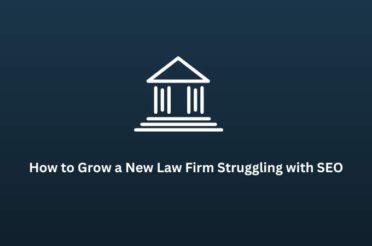Have you ever tried to visit a website and received an error message instead of the page loading? One of these error messages might read “HTTP 451—Unavailable due to legal reasons.” This error comes rarely, but it exists. It is done by the administrator of the website due to legal reasons. If you have ever encountered this error or are facing it, you have come to the right post.
Let’s explain this and its implications for SEO.
What Does HTTP 451 Mean?
HTTP 451 is a specific error message that a web server can send back to your browser when you try to visit a website. HTTP stands for Hypertext Transfer Protocol, a way of describing the rules web browsers and servers use to talk to each other. The number 451 is the specific code used to indicate a particular problem. There are so many common HTTP errors that you might have seen, like 401, 402, 500, etc.
In this case, 451 means that the page you’re trying to access has been blocked for legal reasons.
When you type a web address into your browser, it sends a request to the server where the website is hosted. The server then responds with the website’s content. The server responds with the HTTP 451 status code if the website is blocked for legal reasons.
This response usually includes a message explaining why the page is unavailable, such as “This content is unavailable in your country due to a legal request.”
Examples of HTTP 451 in Action: Imagine you live in a country where the government has decided to block a particular news website because it criticizes the government. When you visit that news site, you might see an HTTP 451 error message instead of the website.
Or, if you’re trying to access a site that shares pirated movies, you might be blocked by an HTTP 451 message because the site has been shut down due to copyright violations.
Why Would a Page Be Blocked for Legal Reasons?
It is something we need to know why it happens. So, first of all, it is done by the administrator at the government’s or court’s request. There are several reasons why a website might be legally blocked. Here are a few common ones:
- Government Censorship: Some countries have laws restricting access to certain content—political, adult, or any other material deemed inappropriate or illegal by the government.
- Court Orders: A court might order a website to be blocked because it is involved in illegal activities, such as copyright infringement, fraud, or defamation.
- Copyright Violations: Websites hosting pirated movies, music, software, or books can be legally taken down to protect the rights of the content creators.
- Data Privacy: Websites that violate data privacy laws (such as collecting personal information without consent) can be legally restricted.
How HTTP 451 Affects SEO
Now, the most important part of this article is to understand its impact on SEO. HTTP 451 can impact SEO. Here’s how:
- Page De-indexing:
- When a page is blocked for legal reasons and returns an HTTP 451 status, search engines like Google will not index that page. This means the page won’t appear in search results, which can significantly affect the visibility of the content.
- Loss of Traffic:
- If a significant portion of your site is blocked and returns HTTP 451 errors, it can lead to traffic loss. Users who encounter these errors may not return, reducing overall site engagement and potentially affecting other rankings.
- User Experience:
- SEO is not just about search engines; it’s also about providing a good user experience. Frequent encounters with HTTP 451 errors can frustrate users, leading them to leave your site and reducing the likelihood of returning. This can increase your bounce rate, which is a negative signal for search engines.
- Legal Compliance:
- Having HTTP 451 errors can negatively impact SEO, so complying with legal requirements is crucial. Ignoring legal orders can lead to more severe consequences, such as entire site shutdowns, which would be even worse for SEO.
- Crawl Budget:
- Search engines allocate a specific crawl budget to each website, determining how many pages they will crawl in a given period. If many pages return HTTP 451 errors, it might save the crawl budget, leaving less room for search engines to index other valuable pages on your site.
Mitigating the Impact of HTTP 451 on SEO
- Redirects:
- Set up 301 redirects from the blocked page to another relevant page where possible. This can help retain link equity and provide users with an alternative resource.
- Custom Error Pages:
- Create a custom error page for HTTP 451 errors that explains the situation to users and provides links to other valuable parts of your site. This can improve user experience and keep them engaged.
- Monitor and Report:
- Monitor your website regularly for HTTP 451 errors. Use tools like Google Search Console to identify and address these issues promptly.
- Legal Review:
- Work with legal experts to understand the reasons for the block and see if there are any steps you can take to resolve the issues legally and restore access to the content.
- Content Strategy:
- Ensure your content complies with legal requirements to avoid future HTTP 451 blocks. Stay updated on laws and regulations in the regions where your audience is located.
Conclusion
HTTP 451 is a tool used to enforce legal restrictions on the internet to inform you that the content you’re trying to access has been blocked for legal reasons. While it can be frustrating to encounter these blocks, they are often put in place to protect legal rights, enforce laws, and maintain online order.
Understanding what HTTP 451 means can help you navigate the web more effectively and know what to do when encountering this error. Additionally, recognizing its impact on SEO and taking steps to mitigate any adverse effects can help maintain your site’s visibility and user experience. Always balance SEO best practices with legal compliance to ensure your website remains accessible and engaging for users.









